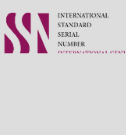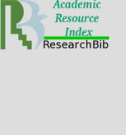A Regional Sweep of the Effects of Covid-19 on Students in Gujranwala: The Adverse Effects of Online Education System
Keywords:
COVID-19, Education Distance, Measurement, Pakistan, StudentsAbstract
Background: COVID-19 pandemic disrupted traditional education worldwide, necessitating a sudden transition to online learning. In Pakistan, particularly in Gujranwala, this shift posed challenges due to limited digital infrastructure, lack of training, and reduced student motivation.
Objectives: To evaluate the impact of online education system during the COVID-19 pandemic on the academic performance, adaptability, and satisfaction levels of students in Gujranwala.
Methods: A quantitative descriptive design was employed. A stratified random sample of 102 students from intermediate to postgraduate levels, who had experienced both traditional and online education between 2020 and 2021, was surveyed using a 16-item structured Google Forms questionnaire. Secondary data were obtained from BISE Gujranwala to compare academic performance before and after the pandemic. Data analysis was conducted using SPSS version 30.
Results: Findings revealed mixed reactions to online education. While 33.3% found it moderately feasible, only 23.5% expressed satisfaction. A majority (55.9%) found it easy to resume pre-pandemic learning, indicating resilience. However, academic data showed a drop in pass percentages post-pandemic: HSSC-1 results declined from 45.79% (2018) to 38.48% (2022), and HSSC-2 from 58.25% (2019) to 56.11% (2023), indicating diminished academic outcomes.
Conclusion: Online education during the COVID-19 pandemic adversely affected student performance and satisfaction in Gujranwala. However, it also underscored the potential of hybrid models, prompting the need for blended learning strategies, improved digital infrastructure, and teacher training for future resilience.
Downloads
References
. WHO. WHO Director-General’s opening remarks at the Mission briefing on COVID-19 [internet]. 2020 [accessed March 12, 2025]. Available from: https://www.who.int/dg/speeches/ detail/who-director-general-s-opening-remarks-at-the- mission- briefing-on-covid-19
. UNESCO. Global monitoring of school Closures caused by COVID-19 [internet]. 2020 [accessed March 12, 2025]. Available from: https://en.unesco.org/covid19/educationresponse
. Rashid S, Yadav SS. Impact of COVID-19 pandemic on higher education and research. Indian J Human Develop. 2020;14(2):340-3.
. Worldometer. Pakistan Coronavirus cases. [Updated 2024, accessed 2025] Available from: https://www.worldometers.info/coronavirus/country/pakistan/
. Malik F, Ajmal F, Jumani Z. The effects of COVID-19 on education in Pakistan: students’ perspective. Int J Dis-tance Edu E-Learning. 2020;6(1):217-34.
. Chaturvedi K, Vishwakarma DK, Singh N. COVID-19 and its impact on education, social life and mental health of students: A survey. Child Youth Serv Rev. 2021;121:105866.
. Acheampong JO. The impact of COVID-19 on students’ academic performance: The case of the university of Ghana business school. Cogent Edu. 2023;10(1):2186011.
. Gujranwala District [internet]. [Updated 2025, accessed 2025] Available from: https://www.pbs.gov.pk/census-2017-district-wise/results/047
. Ali I. Dawn News. Educational institutions to reopen countrywide in phases from Sept 15. Pub-lished September 7, 2020 [accessed March 12, 2025]. Available from; https://www.dawn.com/news/1578399
. Several provinces in Pakistan reopen schools after drop in Covid-19 cases. Pakistan News. June 7, 2021 [accessed March 12, 2025]. Available from: https://indianexpress.com/article/pakistan/several-provinces-in-pakistan-reopen-schools-after-drop- in-covid-19-cases/
. BISE Gujranwala: Gazettes of 2020,2024 of Grade 9, 10, HSSC-1, HSSC-2. [accessed March 12, 2025]
. Wikipedia. Statistics of the COVID-19 pandemic in Pa-kistan. Available from; https://en.wikipedia.org/wiki/Statistics_of_the_COVID-19_pandemic_in_Pakistan
. Kordova S, Hirschprung RS. Effectiveness of the forced usage of alternative digital platforms during the COVID-19 pandemic in project communication management. Heliyon. 2023;9(11):e21812.
. Mukhtar K, Javed K, Arooj M, Sethi A. Advantages, Limitations and Recommendations for online learning during COVID-19 pandemic era. Pak J Med Sci. 2020;36(COVID19-S4):S27.
. Chinazzi M, Davis JT, Ajelli M, Gioannini C, Litvinova M, Merler S, et al. The effect of travel restrictions on the spread of the 2019 novel coronavirus (COVID-19) out-break. Science. 2020;368(6489):395-400.
. Frenette M, Frank K, Deng Z. School Closures and the Online Preparedness of Children during the COVID-19 Pandemic. Statistics Canada. 150 Tunney's Pasture Driveway, Ottawa, ON K1A 0T6, Canada . Economic In-sights. 2020;2020001(103).
. Sintema EJ. Effect of COVID-19 on the performance of grade 12 students: Implications for STEM education. Eurasia J Math Sci Technol Edu. 2020;16(7):em1851.
Downloads
Published
Issue
Section
Categories
License
Copyright (c) 2025 Open Access Journal

This work is licensed under a Creative Commons Attribution-NonCommercial 4.0 International License.



